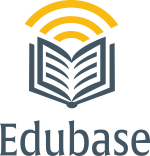Social network as a means of sharing open educational resources in Higher Education
DOI:
https://doi.org/10.7213/dialogo.educ.7639Resumo
This article is about social networks and open educational resources as means of exchange and collaboration for higher education. It highlights the issue of students as participants in the construction of new knowledge, from content presented in class through discussions mediated by the professor and integration of each participant with their own experiences and characteristics from reality and historicity from that moment. It searches, through social networks and open educational resources, new elements which favor the spread of academic culture, university, currently entered into denominations such as: network society, knowledge society or information society. In common in their definitions there is the change of the educational paradigm which assumes that the student is a passive subject who will only have access to information through the professor’s hands, to a new theoretical positioning. The networks are used by the community to share ideas, opinions, and in educational contexts, for sharing computerized educational resources and with authors such as Andres (2000), Bruffee (1999), Downes (2007), Johnstone (2005) and others. The interdependence skills, exchange of ideas and debates with the strategy of collaboration can also be encouraged through the mediation of technology. From several studies on the topic some recommendations are presented so that the educational resources meet international standards of production surpassing the mere text digitization. The use of educational resources can mean an improvement on the proposals of hybridization of teaching in higher education institutions, by allowing a relaxation of the teaching-learning process which overcomes the boundaries of traditional and formal education.Downloads
Referências
ANDRES, Y. EduNet. Students benefit from collaborative learning in the classroom. T.H.E. Journal, v. 28, n. 2, p. 42-46, 2000.
BRUFFEE, K. A. Collaborative learning. Higher education, interdependence, and the authority of knowledge. 2nd ed. Baltimore: Johns Hopkins, 1999.
COUTINHO, L. Aprendizagem online por meio de estrutura de cursos. In: LITTO, F.; FORMIGA, M. (Org.). Educação a distância: o estado da arte. São Paulo: Pearson Education do Brasil, 2009. p. 310-316.
DOWNES, S. Models for sustainable open educational resources. Interdisciplinary Journal of Knowledge and Learning Objects, v. 3, 2007. Available at: <http://ijello.org/Volume3/IJKLOv3p029-044Downes.pdf>. Access on: Feb. 18 2013.
DUTRA, R. L. S.; TAROUCO, L. M. R. Recursos educacionais abertos (Open Educational Resources). RENOTE, v. 5, p. 1-8, 2007.
HARASIM, L. M. Redes de aprendizagem: um guia para ensino e aprendizagem on-line. São Paulo: SENAC, 2005.
JOHNSTONE, S. Open educational resource serve the world. EDUCAUSE Quarterly Magazine, v. 28, n. 3, 2005. Available at: <http://www.educause.edu/EDUCAUSE+Quarterly/EDUCAUSEQuarterlyMagazineVolum/OpenEducationalResourcesServet/157357>. Access on: Feb. 18 2013.
MACHADO, J.; TIJIBOY, A. V. Redes sociais virtuais: um espaço para efetivação da aprendizagem cooperativa. Revista Novas Tecnologias na Educação, v. 3, n. 1, 2005.
MARTINS, G. et al. A contribuição das redes sociais para a aprendizagem e construção do conhecimento: evidências em estudantes de cursos de graduação. In: COLÓQUIO INTERNACIONAL DE GESTÃO UNIVERSITÁRIA NA AMÉRICA
DO SUL, 9., 2009, Florianópolis. Anais... Florianópolis: Universidade Federal de Santa Catarina, 2009.
MARTINS JÚNIOR, S. A. R.; BORTOLOZZI, F.; ELEUTÉRIO, M. A. M. Integração de objetos de aprendizagem em ambientes virtuais. 2006. 150 f. Dissertação (Mestrado) – Pontifícia Universidade Católica do Paraná, Curitiba, 2006.
TORRES, P. L. Laboratório On Line de Aprendizagem: uma proposta crítica de aprendizagem colaborativa para a educação. Tese. (Doutorado em Educação) – Universidade Federal de Santa Catarina, Florianópolis, 2002. Disponível em: <http://www.eps.ufsc.br>. Acesso em: 10 abr. 2012.
TORRES, P. L.; TARRIT, C. R. Breve histórico da educação a distância na PUCPR. RICESU 10 anos de história da EAD nas IES católicas. Porto Alegre: Ed. da PUCRS. (e-book) 2010.
UNESCO. Forum on the impact of open courseware for higher education in developing countries. Paris, 1-3 July, 2002. Available at: <http://unesdoc.unesco.org/images/0012/001285/128515e.pdf>. Access on: Feb. 18th 2013
UNESCO. A brief summary of some of the issues and points made during the forum discussion. Available at: <http://oerworkshop.weebly.com/uploads/4/1/3/4/4134458/forum_summary.pdf>. Access on: Feb. 18th 2013.
WILEY, D. On the sustainability of open educational resource initiatives in higher education. OECD’s Centre for Educational Research and Innovation (CERI) for the project on Open Educational Resources 2007. Available at:
. Access on: Feb. 22nd 2012
Downloads
Publicado
Como Citar
Edição
Seção
Licença
O(s) autor(es) transfere(m), por meio de cessão, à EDITORA UNIVERSITÁRIA CHAMPAGNAT, pessoa jurídica de direito privado, inscrita no CNPJ/MF sob o n.º 76.659.820/0009-09, estabelecida na Rua Imaculada Conceição, n.º 1155, Prado Velho, CEP 80.215-901, na cidade de Curitiba/PR, os direitos abaixo especificados e se compromete a cumprir o que segue:
- Os autores afirmam que a obra/material é de sua autoria e assumem integral responsabilidade diante de terceiros, quer de natureza moral ou patrimonial, em razão de seu conteúdo, declarando, desde já, que a obra/material a ser entregue é original e não infringe quaisquer direitos de propriedade intelectual de terceiros.
- Os autores concordam em ceder de forma plena, total e definitiva os direitos patrimoniais da obra/material à EDITORA UNIVERSITÁRIA CHAMPAGNAT, a título gratuito e em caráter de exclusividade.
- A CESSIONÁRIA empregará a obra/material da forma como melhor lhe convier, de forma impressa e/ou on line, inclusive no site do periódico da EDITORA UNIVERSITÁRIA CHAMPAGNAT, podendo utilizar, fruir e dispor do mesmo, no todo ou em parte, para:
- Autorizar sua utilização por terceiros, como parte integrante de outras obras.
- Editar, gravar e imprimir, quantas vezes forem necessárias.
- Reproduzir em quantidades que julgar necessária, de forma tangível e intangível.
- Adaptar, modificar, condensar, resumir, reduzir, compilar, ampliar, alterar, mixar com outros conteúdos, incluir imagens, gráficos, objetos digitais, infográficos e hyperlinks, ilustrar, diagramar, fracionar, atualizar e realizar quaisquer outras transformações, sendo necessária a participação ou autorização expressa dos autores.
- Traduzir para qualquer idioma.
- Incluir em fonograma ou produção audiovisual.
- Distribuir.
- Distribuir mediante cabo, fibra ótica, satélite, ondas ou qualquer outro sistema que permite ao usuário realizar a seleção da obra ou produção para recebê-la em tempo e lugar previamente determinados por quem formula a demanda e nos casos em que o acesso às obras ou produções se faça por qualquer sistema que importe em pagamento pelo usuário.
- Incluir e armazenar em banco de dados, físico, digital ou virtual, inclusive nuvem.
- Comunicar direta e/ou indiretamente ao público.
- Incluir em base de dados, arquivar em formato impresso, armazenar em computador, inclusive em sistema de nuvem, microfilmar e as demais formas de arquivamento do gênero;
- Comercializar, divulgar, veicular, publicar etc.
- Quaisquer outras modalidades de utilização existentes ou que venham a ser inventadas.
- Os autores concordam em conceder a cessão dos direitos da primeira publicação (ineditismo) à revista, licenciada sob a CREATIVE COMMONS ATTRIBUTION LICENSE, que permite o compartilhamento do trabalho com reconhecimento da autoria.
- Os autores autorizam a reprodução e a citação de seu trabalho em repositórios institucionais, página pessoal, trabalhos científicos, dentre outros, desde que a fonte seja citada.
- A presente cessão é válida para todo o território nacional e para o exterior.
- Este termo entra em vigor na data de sua assinatura e é firmado pelas partes em caráter irrevogável e irretratável, obrigando definitivamente as partes e seus sucessores a qualquer título.
- O não aceite do artigo, pela EDITORA UNIVERSITÁRIA CHAMPAGNAT, tornará automaticamente sem efeito a presente declaração.












